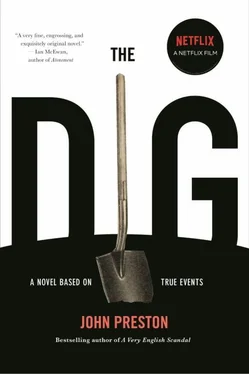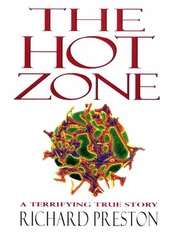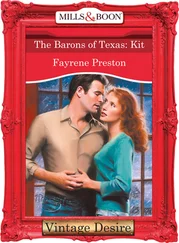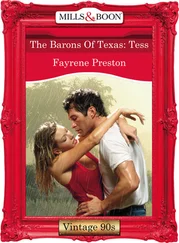“The BM thinks I should hold a press conference. Personally I’m all against it. Anything I say is bound to be distorted. Some idiot has already telephoned this morning and asked if the boat is still seaworthy. Mrs. Pretty is understandably upset, poor lady. I have done my best to calm her, but she has gone back upstairs for the time being.”
“What do you think we should do about the actual dig?” asked Stuart.
“Nothing,” said Phillips promptly. “We can’t possibly continue in this sort of atmosphere. Not with all this nonsense going on. I gather there’s a convoy of journalists on their way here now. The whole place will be crawling with them in a few hours’ time. My intention is to let everything calm down for several days and then finish excavating the chamber. Assuming we’re not at war, that is.”
“And what would you like us to do?”
“Ah, I’ve been thinking about that. Why don’t you come back outside for a moment?”
Once there, Phillips lowered his voice — as much, it seemed, out of a love of subterfuge as anything else. “Crawford has finally made contact and hopes to be here tomorrow. Plenderleith and Hutchinson have also offered to help. There’s even a good chance that Munro will come. Under the circumstances, I thought you two might like to take this opportunity to slip away.”
“Slip away?” said Stuart.
“That’s right. After all, you two are supposed to be on your honeymoon. I should go off and make the most of it while you still can. As I say, there isn’t going to be much happening here for the next few days. I suspect we are probably close to the bottom of the chamber already. I doubt if there can be much more left to come. It’s conceivable we may still find a body, although, as you know, I have always had my doubts on that score.”
“When were you thinking we might leave, CW?”
“No time like the present, is there? Not strictly true in archaeological terms, of course, but there’s something to be said for it just the same. If you go now, you should escape all these wretched journalists.”
“What do you think, darling?” said Stuart. “Darling…” he said again.
“I don’t know.”
“I suppose we could just potter up the coast and take pot luck.”
“I assumed you would be keen on the idea,” said Phillips, sounding offended. “Grateful even.”
“We are pleased, naturally we are. At the same time it’s bound to be rather a wrench.”
“Yes, yes, but soon all this will be a happy memory. One to put alongside many others, I have no doubt.”
“Shouldn’t we say goodbye first?”
“You can say goodbye. Right now.”
“Not to you, CW. I meant to the others.”
“As I mentioned earlier, Mrs. Pretty is unavailable at the moment,” explained Phillips patiently. “If you have any messages for anyone else, I will be only too happy to pass them on. Was there anything in particular you would like me to say? No? In which case I shall convey a general salutation from you both.”
“If you’re really sure…”
“Perfectly sure.”
Phillips came across the gravel towards us, making shooing motions with his hands. “Now, off with the pair of you before I change my mind.”
We drove back to the Bull. Stuart stayed downstairs while I went up to our room to pack. It didn’t take long. After I had handed in the key, Stuart carried our suitcases and strapped them onto the back of the car. We made better progress than expected. By midday, we were already halfway to Norwich.
Edith Pretty
13–14 AUGUST 1939
All day Spooner and Jacobs trudge back and forth across the lawn, emptying watering cans on the flower beds. According to Spooner, the river level is so low that several of the fishermen have begun anchoring their boats as far down as Bardsey. At breakfast, to try to encourage some semblance of a breeze, we have taken to opening the windows wide, as well as the door. Yet it makes no difference: the air just sits there, unstirrably thick.
Last night, a full-scale blackout exercise was held in London. A report appeared in today’s newspaper:
It was curious to see Piccadilly Circus, Coventry Street and Leicester Square, which are normally blazing with lights until well into the early hours, in more than semi-darkness. All-night restaurants and cafés were open as usual. However, blinds covered their windows and all bulbs had to be properly screened. Inside, ghostly figures sat eating and drinking in a mysterious half-light.
I put down the newspaper. Robert was still eating his breakfast. The knife and fork no longer appeared so unwieldy in his hands; he manages them now without any sign of awkwardness. I could tell that he knew I was watching him, but he would not look up. Instead, he lowered his head a little closer to the plate and carried on eating. He has been like this ever since the excavation ended. Doubtless he blames me for work having stopped. With no one to play with and nothing to distract him, his days pass in a brown study of frustration and inactivity.
“Robbie,” I said, “how would you like to have your portrait painted?”
At this, he did look up in surprise. “What for?”
“So that I can remember you as you are now.”
“Won’t you be able to do that anyway?”
“Of course I will. But sometimes it helps to have a reminder.”
“What about a photograph?”
“A portrait is different from a photograph.”
“How is it different?”
“Because it has artistic worth. I have already spoken to a very nice man, a Mr. Visser, who lives in Ipswich.”
“Could I wear what I wanted?”
“I would have thought so. Within reason.”
“Would I have to sit still for a long time?”
“I’m afraid you would. Although I am sure you could have regular breaks. Would you like that, Robbie?”
He thought about it and then said, “I don’t mind. If that’s what you want. Please may I get down now, Mama?”
“Of course. If you are quite sure you have finished.”
After Grateley had cleared everything away, I went into the kitchen to see Mrs. Lyons. There was a saucepan simmering on the range, its lid rattling, and some crescents of diced celery lying on the chopping board. The kitchen, however, was empty.
I found Mrs. Lyons in the larder. She was sitting on a milking stool with the undersides of her arms resting on the tiled slab. On the back of her neck was a damp tea towel. She started to stand up as soon as she saw me and only sank back down after some persuading.
“I’ve been coming in here quite a lot recently, I’m afraid, ma’am. It’s the coolest room in the house.”
It was indeed wonderfully cool; so cool I wished I could join her. Instead, we discussed arrangements for Thursday afternoon. We decided in the end that she should make two cakes — one with chocolate cream filling and the other with jam — as well as scones and brandy snaps. I was about to leave when she told me that Mr. Trim, the butcher in Woodbridge, had had a change of heart and decided that he would be able to take our rabbits after all.
Afterwards, I went through into the sitting room. Grateley had closed the curtains to shut out the sunlight. At eleven o’clock, Spooner came to the back door. As it was my wedding anniversary, I had asked him to pick me a bunch of flowers. He was standing on the step holding a sorry-looking bunch of dahlias and pinks. Already they had started to wilt. Before I could say anything, Spooner started to apologize, explaining that these were the best he had been able to find.
During the afternoon, when the heat was a little less fierce, Lyons drove me to the churchyard. He waited outside while I lifted the latch and went through the gate. No one else was there. Dead stalks crackled underfoot. Everything was pale and washed out. Even the stones looked as if they had been bleached.
Читать дальше












